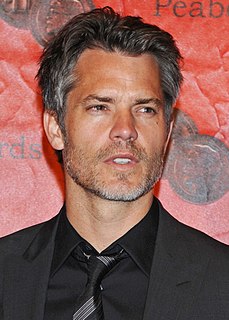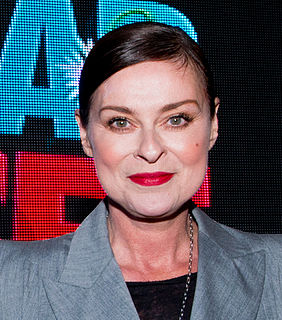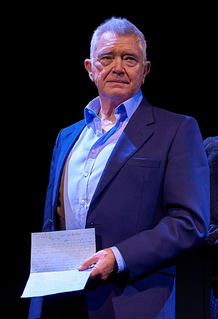A Quote by E. L. Doctorow
Someone dying asks if there is life after death. Yes, comes the answer, only not yours.
Quote Topics
Related Quotes
But we are not interested in death at all: rather, we escape the facts, we are continuously escaping the facts. Death is there, and every moment we are dying. Death is not something far away, it is here and now: we are dying. But while we are dying we go on being concerned about life. This concern with life, this over concern with life, is just an escape, just a fear. Death is there, deep inside - growing.
When someone asks you the question 'Are you ticklish' it doesn't matter if you say yes or no, cause they're going to touch you. If someone asks if you're ticklish and you don't want to be touched you should something like 'I have diarrhea, now don't touch me cause you'll make it come out... and yes I'm very ticklish'.
I have often had cause to feel that my hands are cleverer than my head. That is a crude way of characterizing the dialectics of experimentation. When it is going well, it is like a quiet conversation with Nature. One asks a question and gets an answer, then one asks the next question and gets the next answer. An experiment is a device to make Nature speak intelligibly. After that, one only has to listen.
When one existentially awakens from within, the relation of birth-and-death is not seen as a sequential change from the former to the latter. Rather, living as it is, is no more than dying, and at the same time there is no living separate from dying. This means that life itself is death and death itself is life. That is, we do not shift sequentially from birth to death, but undergo living-dying in each and every moment.
When a significant other - a spouse, a parent or someone you're close to - is dying, it forces you to think about your life, about what you feel about death. What I realized from my dad's dying was that I wasn't scared of dying. But I was terrified of regrets. I was terrified of getting to the end of my life with a lot of Why didn't I's.
The opposite of compromise is not integrity. The opposite of compromise is not idealism. The opposite of compromise is fanaticism and death. And yes, I know one or two things about fanaticism and death, and I reject them. The alternative to fanaticism and to death is not some miraculous realization that someone has been wrong and he has to apologize. No, the answer to fanaticism and to death is curiosity and compromise and concession.
After a conversation with someone that went on all night, but I didn't take much persuading, and the next day I was a vegetarian. It came down to one question, can you be healthy without killing animals? If the answer is 'yes' then the only reason you're killing is because you like the taste. But you can't take a life just because you like its taste.
Life … is a bit like reading. … If all your responses to a book have already been duplicated and expanded upon by a professional critic, then what point is there to your reading? Only that it’s yours. Similarly, why live your life? Because it’s yours. But what if such an answer becomes less and less convincing?







































